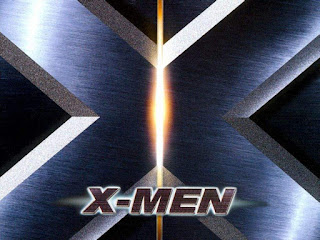Superheroes, Week 3
Here's the worksheet for tonight's class on "The X-Men." See you tonight at 6:30!
Title: “X-Men” (2000)
Starring: Hugh Jackman, Patrick Stewart, Famke Jassen, Halle Berry, Ian McKellen, and James Marsden
Synopsis: “X-Men,” directed by Bryan Singer, was one of the first big, modern blockbuster films to be based on comic books. We see comic book film adaptations all the time now, and after the past 13 years it’s hard to imagine them not being a part of the cinematic landscape. But this modern explosion of comic book films — particularly the works of the Marvel Comic universe — came on with the release of, and success of, “X-Men.” Superman was featured in a quartet of films from the late 1970s through the 1980s, and Batman was featured in four films — portrayed by three different actors — in the 1990s, but by the end of that decade the franchise had faded.
Singer, who had been best known for directing the Academy Award-winning film “The Usual Suspects,” took on the project of bringing a film about a team of genetically altered superheroes and villains to life. “X-Men” commanded a budget of $75 million during a time when film budgets weren’t routinely $100 million or more as they are today. The audience response was great, and the film made more than $150 million at the Box Office. The film quickly spawned its own franchise — leading to a pair of sequels, a spin-off, and a prequel with 2011’s “X-Men: First Class.” And it’s still going. This summer will feature the second spin-off starring Hugh Jackman as Wolverine, and next summer will see a sequel of the prequel with “X-Men: Days of Future Past,” which is said to reunite the casts of the prequel and the original “X-Men” film.
What has always set the X-Men apart in the Marvel universe is the subtext behind the story — which is about the desire for acceptance, and the resistance those who are different often feel. The X-Men have been a metaphor for the way people who are “different” are treated. In the early days, that metaphor was about racial and gender equality. The film version does a good job of continuing that idea as it tells its own story.
Questions to Consider:
1. How does society typically react to people and ideas that are different?
2. What does the Bible tell us about how we are supposed to approach people who are different? Do we treat them differently?




Comments
Post a Comment